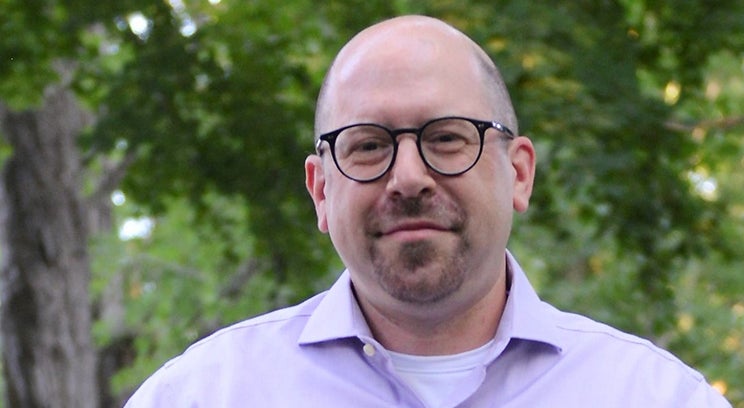
The havoc from the COVID-19 pandemic is ongoing. To date, the COVID-19 pandemic has taken one million lives around the world. The United States has 11.5 million fewer jobs than it did before the lockdown began. Many businesses have filed for bankruptcy or closed entirely.
One business that has found a way through the COVID-19 challenges is Whirlpool, which had a strong second quarter despite the economic turmoil. That success is due in part to Whirlpool’s global legal department and Deputy General Counsel Aaron Spira, who used his business acumen to help adapt Whirlpool’s distribution operations and strategy to the unprecedented global crisis.
ACC Docket spoke with Spira via Zoom while he was on vacation in Sleeping Bear Dunes National Lakeshore in northern Michigan. Below, he shares how Whirlpool’s legal team leveraged their legal expertise to help the business not only survive but is some circumstances thrive during this challenging time, from producing personal protective equipment (PPE) for medical workers to bolstering Whirlpool’s online presence for consumers ordering KitchenAid stand mixers.
ACC Docket: In-house counsel have been critical as companies respond to the COVID-19 crisis, which has drastically changed how companies operate. How has Whirlpool adapted its distribution and operations strategies in response to the pandemic?
Aaron Spira: As a global company, we had the ability to see what was coming. Because the virus first started in China and Asia, we [later] knew it was coming first through Europe and then to the United States, and it gave us a little bit of time to prepare and anticipate and learn from trial and error in other places. So that was particularly helpful.
But our leadership very quickly coalesced around four priorities for our enterprise, which apply to the law department as well. They are:
- Protect the health and safety of our employees, first and foremost;
- Serve our consumers, which means trying to make sure we were able to continue to operate and stay in business, because the production, delivery, and installation of our products were critical to help people while they were quarantined or under stay at home orders;
- Try and preserve jobs within our own company; and
- Protect the company itself for the long-term. We've been here for over 100 years and we want to continue being strong for the next 100 years as well.
In order to navigate this situation, we had to execute well on the areas directly under our control and we needed to react quickly and thoughtfully to a changing external environment — economic conditions and regulations. So in terms of our own internal focus, first and foremost, was to make sure we understood the daily changes to the regulatory systems and rules and requirements that allowed us to continue operating our manufacturing facilities.
During the stay at home orders across the United States, we were able to continue operating all of our US manufacturing facilities. We had down days or weeks at times to make sure we were minimizing specific health risks. But overall, we were able to continue operations. We had to implement, of course, new safety protocols, and that was part of what we were working on as well.
It really changed how we ran our facilities but were able to keep them running. That was important because, again, our consumers still wanted to buy our products — particularly refrigerators, freezers, and things like that, as people were trying to stock up and store food.
So we were actually having a hard time keeping those types of products in stock. The other [popular item] was our iconic KitchenAid stand mixer, which became even more important and helpful to families, as baking took on new importance and value at home. So again, it was really important that we, in a safe way for our employees, help our consumers get what they needed.
It wasn't just our own manufacturing facilities, but it was also working very closely with our suppliers to make sure that they could continue to get us the key components that we needed. Oftentimes, that involved helping them put in place the right health and safety protocols, and providing them some insights and perspective.
Other things that we did was to adapt to the changing ways our consumers wanted to purchase our products, which meant a big focus on online sales. Direct to consumer sales were and still are a strategic pillar for our company. We had to speed up and expand our online sales capabilities because we wanted to make sure that our consumers could find our products wherever they wanted to view and buy them.
Is your company prepared for a recession? Consider these high-level strategies detailed in "An Executive Recession Plan Can Help Protect Your Company," featured in the ACC Docket October 2020 issue.
Increasingly, that's an online experience. But, certainly, COVID required that to speed up quite a bit. We had to quickly scale up our operations, both in terms of making sure the marketing claims and materials were accurate, so consumers understood what they were looking at and choosing by making sure that we had the right structure and we had to ensure we had the right delivery and installation capabilities to actually follow through on the sales once the consumer clicked “buy.”
Of course, then there was the whole privacy data and security element of it. We had to make sure that we have a robust structure behind it as it was scaling up so quickly, and so our team was involved in every one of those steps and pieces to help enable that.
We've seen a tremendous exponential growth in online sales, to go online with our 3,000+ brick and mortar retailers. So it's a combination, but it's great that wherever consumers want to go, they can find what they need from us.
It’s also difficult because few people are experts in how to handle a catastrophic pandemic. Thankfully, since in-house counsel are well versed in risk management, your team was able to prepare for this. And that shows because Whirlpool had a solid second quarter, despite the economic downturn from the pandemic. What strategies did your team implement to assure this resiliency?
Spira: Yeah, I mean, we were really proud of the second quarter and proud of our team's contributions to helping deliver that not just to North America, but in every region. I think some of the areas of unique value that the law department added to so foundational really was keeping things moving. So figuring out ways to enable our manufacturing facilities to stay open and continue production while still protecting the health and safety of our employees.
As you said before, we were not necessarily experts in some of the unique ways in which we need to do that. But the foundation point of keeping our employees healthy and safe is we are experts. So, yes, there were new ways to do it, but it wasn't like a new value or idea that we had to spread in the culture of our company or organization. People already understood that as a critical thing.
It was more than just how do we do it now based on how events are unfolding and working really closely with our suppliers. We have a global footprint in terms of our supply chain, and that was stretched and challenged in this current situation. So whether it was helping suppliers operate and get products and goods out of a particular country to our manufacturing locations, whether that was looking for new suppliers that were maybe more locally based as a bridge, all of those were key things that we were doing.
Another piece that we hadn't talked about yet was it's really important to protect, obviously, the long-term viability of the company. Part of that entails making sure we get paid for the goods and services that we've made and working closely with our retailers to make sure that they had products and we were supporting them, but without taking on too much risk or serving as their creditors. We had to make sure we were getting paid for what we provided. And so we played a unique role working with our finance colleagues to help ensure that payment terms and credit were structured appropriately and that we were not taking on too much risk.
The final thing I would highlight is not really so much speaking to the Q2 results, but more of how the law department and our company is trying to step up and do more. And it's not just about selling the products, but we talked earlier about meeting the needs of our communities and our consumers.
There were obviously shortages of critical health equipment as the pandemic spiked in certain areas. So, we dedicated portions of our team and our product development team to develop a few new products.
One example is a new respirator ready for hospital workers. The unit is a self-contained respirator, ventilator mask unit so that healthcare providers can get clean, fresh air, and not have it overheat, but still able to be up close with their patients.
That's in a partnership with a couple of our key suppliers. We've gotten federal government approval and it's already available. In hospitals, our procurement team went to great lengths to bring masks and other sorts of gowns, gloves, and resources to some of our community hospitals to make sure that they had what they needed.
Also, the N-95 masks, which we have gone through shortages, is another key safety component for our medical providers. Historically, they’re the single-use type of product. We were looking and are looking at ways to adjust our ovens so that they can be used to be retrofitted to allow for sanitization and sterilization of those masks so that they can be reused safely by medical providers.
So, in all of those different projects, the legal team, again, was front and center and working on those. We take a lot of pride in being part of that and helping our community and, of course, our medical providers who are on the front lines. It's fantastic.

It seems that Whirlpool reflects your views to help consumers and the community. And you've been able to help not only your consumers and your staff, but also the medical employees who are working to curb this pandemic. It's fantastic that your team has been able to help in all these different areas and you've been able to leverage your legal expertise in that capacity. How can other general counsel bolster their legal departments to help their companies during the pandemic?
Spira: There are many great legal departments out there that are doing great things, so I certainly wouldn't say we're the only ones that have it figured out. But I do feel very proud of how we're navigating through this really challenging time.
One is to stay calm and not let the element of change or uncertainty throw you off your game or cause you to not rely on the skills and experiences that sort of got you this far. Two is understanding the core strengths and needs of the business and making sure that that's what we're supporting, and doing that has provided a really key anchor for a lot of what we did.
So, we were talking earlier about consumers increasingly looking to purchase appliances online. The infrastructure and policies were not something that we created solely in response to COVID-19. It was something that was sped up or have a greater emphasis on it as a result of COVID-19. But it was a core strategy to what we were already doing because we recognized that it was what our consumers needed.
I think this is a time to really understand the purpose of your business: What it is you're doing, and what you're offering, then figure out how to how to do that in a complete and compelling way. Obviously, maybe some new challenges, but focusing on the core attributes and goals I think is really helpful as an anchor.
The other thing is to prioritize. There are a lot of stories and articles of people saying we're overwhelmed or stressed. We're working longer hours than we ever have. Certainly, that’s the case for our team as well. But part of what we've done in a very structured and systematic way is to document and understand the new work that's coming on as a result of COVID and then looking at our pre-existing priorities for the year and making the choices of what is coming off of our list.
What is it, we thought, that we were going to do as the year started that we no longer are going to do because of these new priorities? We recognize that time is a finite resource. You can't just perpetually add things on and expect to deliver at the same quality and in the same way.
So, the ability to prioritize and make those tough choices about what is important and sort of use this pandemic as an opportunity to re-evaluate what really does matter to you. Maybe there were things we were doing that while helpful were kind of nice to have but were not critical.
This is a great opportunity to maybe take those things off the plate. And so even if and when some of the COVID specific emergency actions we get reduced and pull back, I don’t want to instinctively just add those other things back on. How else can we use our time to add the most value and contribution to the enterprise?
Your team is a winner of the 2020 ACC Value Championship Award. What programs and initiatives were highlighted and how did your legal department achieve this?
Spira: We have long admired the Value Champions program and learned a lot over the years from past winners. We think it's a terrific program and resource for in-house departments, so we're really privileged and honored to be on the winning side this year.
We look forward to working with our colleagues to share what we've done and help others implement similar programs if they're so inclined. Our world was focused on our use of continuous improvement to drive operational excellence. We highlighted our claims department as the model for that.
But frankly, we've been working for the last couple of years to execute and roll this out across all of the functional areas within the law department. But the claims group in particular is a group of 20 plus administrative professionals and two lawyers who handle thousands of claims every year: consumer claims, insurance claims dealing with property damage, and personal injury claims [that] involve in excess of US$100M in risk.
A significant portion of work and what we saw was too much variance and inconsistency in how we were executing on the work. So we implemented a continuous improvement approach, which served to empower our frontline workers and enable them to bring ideas forward of how to do things better, and then to leverage that across the entire team by putting in place things like standard work approaches.
So, if you have 20 people all doing very similar work and one person has an element of how they do things that's the best, we want to make sure that all 20 people get the benefit of that and are applying it. Then as we have continued improvements and better ways to do things, we can apply that to all the whole team and not just one person in a unique setting. So that has been really outstanding and sort of the response that has driven.
We have improved our financial results tremendously, including an 18 percent decrease in product liability costs. In some ways, what I'm most proud of is the engagement scores within that team have gone up nearly 10 percent year over year. So, people are really responding to being included in the process of improving the work that we all do. Then we're giving them the space because they know best how to do this work and how to put it in practice. It's been a great experience and we're really honored to have received the Value Champions Award this year.
Have you participated in any other ACC programs or events? And if so, how has that helped you in your role at Whirlpool?
Spira: We leveraged the ACC as a department in a myriad of ways. It's really a tremendous resource for us [and for me] personally. As I reflect on my interactions with ACC, the highlight for me was the opportunity to participate in the Executive Leadership Institute (ELI) program that has far and away been the best professional development training program I've ever participated in.
It was a week of outstanding programming with incredible teachers, mentors, and a peer group that's unrivaled. I had the privilege of participating in that program a couple of years ago and continue to leverage the ideas and learnings, and also the relationships that have come from that. So, to the extent others have a chance to participate, I would encourage folks to prioritize that. It's just really a world class program.




